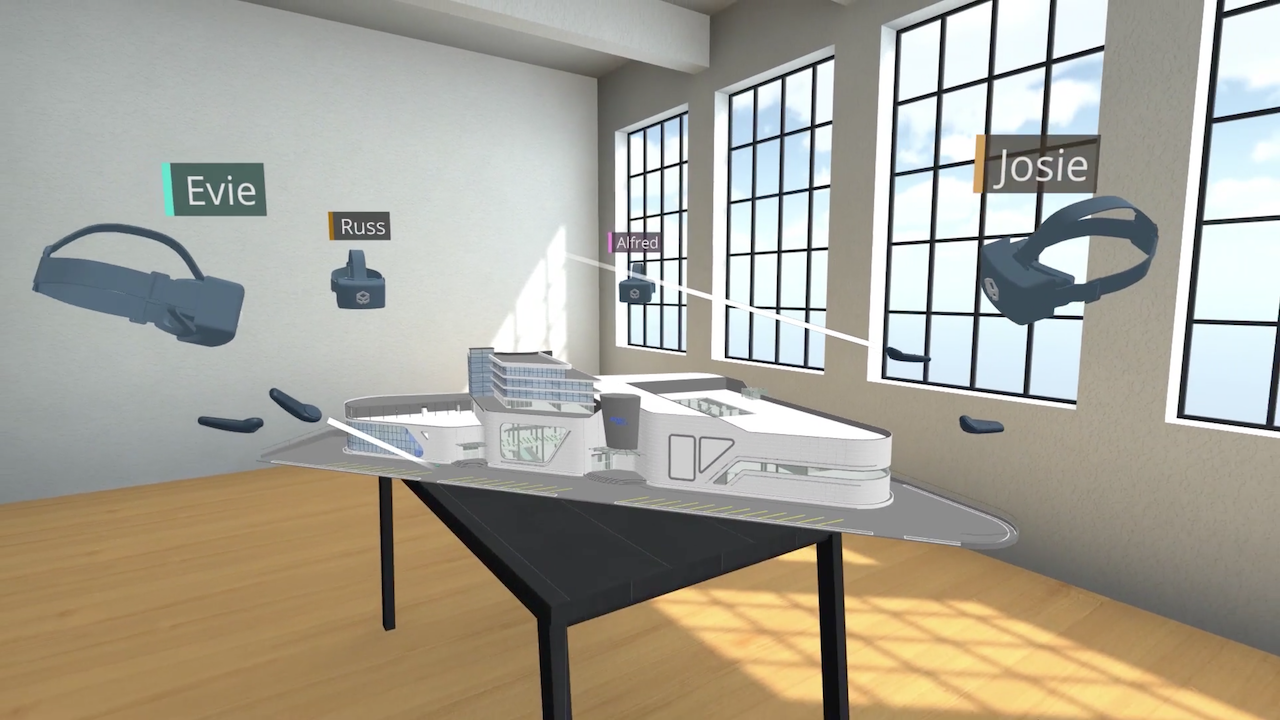
Quantum Names Liz King Chief Revenue Officer
May 16, 2019
Quantum to Showcase New NVMe Flash Platform, Solutions for Multiple Workflow Stages at 2019 NAB
May 16, 2019It’s All Coming Together: Collaborative VR Will Disrupt the Construction Industry


From pencil and paper, to CAD, to BIM and 3D modelling, the ability to visualize, design, and build using a model has always been at the core of construction. The digitization of our industry gives us new opportunities to explore what we hope to build before the first shovel of dirt is turned. Now, by combining the power of BIM and the cloud, we’ve moved from static images to completely immersive, intelligent virtual reality. At Autodesk, we know VR can be a more valuable tool in the AEC industry, especially during the preconstruction phase when digital data starts to translate into real-world resources and logistics.
Watch this webinar to learn how PARIC uses the integration between Autodesk BIM 360 and InsiteVR for their constructability workflows.
Most of us know what VR can do. It allows any project stakeholder to experience a digital model before it’s built, helping to ensure vision aligns with the design. Potential conflicts or required changes can more easily be identified before issues arise during construction. As they say, “Bytes are cheaper than bricks!” VR gives project stakeholders a chance to fix common issues of waste and re-work before they’re allowed to happen.
We’ve grown accustomed, however, to seeing a person donning a VR headset, only to work in the solitude of a lonely digital world. Is this the future we’re headed for?
Thankfully, we can now say goodbye to the loneliness of single-person VR and hello to truly collaborative, multi-person experiences, thanks to our work with InsiteVR.
Introducing the InsiteVR+ BIM 360 Integration
The InsiteVR and Autodesk BIM 360 integration is the first commercially available solution on Autodesk’s construction platform to allow customers to host group model reviews in VR. Instead of screensharing, team members can review models in an immersive 3D environment by using a leading VR headset (including Facebook’s new Oculus Quest) or a normal desktop.
Bringing Design Review into Virtual Reality
InsiteVR is a company that builds immersive communication software for the architecture, engineering, and construction (AEC) industry to improve project delivery and reduce errors. Like a conference call for virtual reality, InsiteVR lets AEC project teams review their 3D models together in VR to identify and resolve issues, removing the need to travel to meetings or build physical mock ups to address complex project issues between disciplines.
Using InsiteVR, stakeholders can more directly experience designs, increasing understanding and confidence among all collaborators. Coordinating with VR meetings allows project teams to identify more issues than with traditional 2D tools and helps ensure everyone is on the same page with resolving those issues. This is a huge boost to performing effective constructability reviews and ensuring field execution goes as smoothly as possible.

Multi-user VR changes the way design and construction teams collaborate and make decisions. Courtesy of PARIC and InsiteVR.
Even More Good News
Thanks to a new integration between Facebook’s Oculus Quest, InsiteVR, and Autodesk BIM 360 construction management platform, it’s never been easier to incorporate VR into your design-review workflows. On April 30th, Facebook began accepting preorders of its Oculus Quest and will begin shipping on May 21st. According to the Oculus team, this is their first all-in-one virtual reality system that allows you to explore VR without connecting to a PC. As an enterprise partner with Oculus, InsiteVR works seamlessly with the new hardware, as does its integration with Autodesk BIM 360.
Powered by Autodesk Forge
Getting all of these partners’ technologies to play nicely is no easy task, but that’s where Autodesk Forge comes in. As Autodesk’s connected developer cloud platform comprised of web services, technical resources, and an engaged community, Forge lets companies develop customized and scalable solutions to solve design, engineering, construction, and manufacturing challenges.
The Forge platform is addressing the partner integration problem with its VR/AR toolkit, which helps developers stream data from their systems into AR/VR devices. Using technology like Forge, Autodesk, its technology partners, and clients have been working to systematically remove barriers and create VR workflows that are both valuable and accessible to the broader AEC industry.
The fine print: Autodesk, the Autodesk logo, and BIM 360 are registered trademarks or trademarks of Autodesk, Inc., and/or its subsidiaries and/or affiliates in the USA and/or other countries. All other brand names, product names, or trademarks belong to their respective holders. Autodesk reserves the right to alter product and services offerings, and specifications and pricing at any time without notice, and is not responsible for typographical or graphical errors that may appear in this document. © 2019 Autodesk, Inc. All rights reserved.

